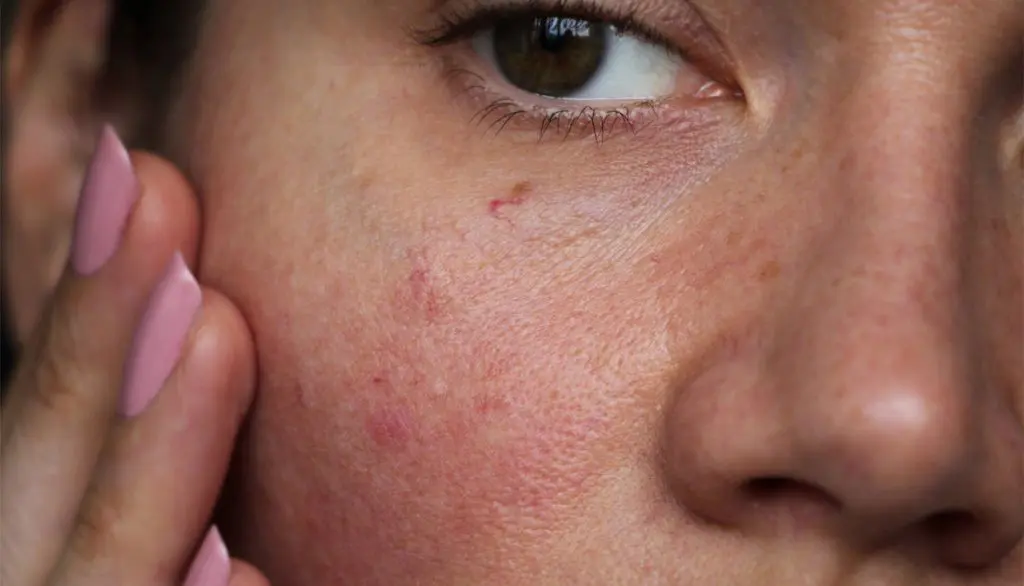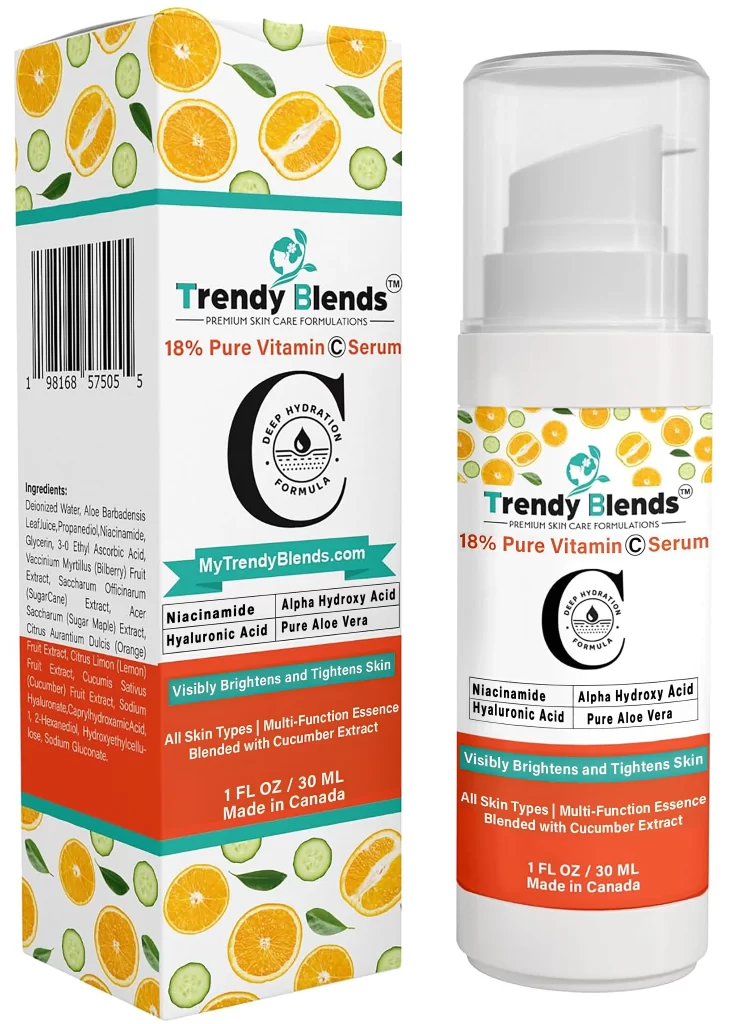Best Skincare Advice for Sensitive Skin
Important Factors to Consider When Choosing Products for Sensitive Skin.
Table of Contents:
For those endowed (or perhaps burdened!) with sensitive skin, the beauty aisle can seem less like a haven of glowing possibilities and more like a minefield of potential irritants. Redness, itching, dryness, and breakouts – these are the unwelcome visitors that might ruin the experience when the wrong skincare product is chosen. However, don’t worry, navigating this sensitive terrain is entirely achievable with some knowledge and a strategic approach. Selecting products for sensitive skin isn’t about giving up self-care, it’s about becoming an informed consumer and prioritizing ingredients that nurture rather than irritate your delicate complexion.
Sensitive skin isn’t a medically defined condition, but rather a descriptive term for skin that is more susceptible to irritation and adverse reactions. It can appear in various forms and be triggered by numerous factors, from harsh weather and pollution to stress and, most commonly, skincare product ingredients. Recognizing that your skin barrier is often compromised and more easily penetrated by irritants is the first step towards making better product choices. This means looking beyond enticing marketing claims and exploring the details of ingredients and formulations.
So, what are the key factors to consider when choosing products designed to soothe, protect, and enhance sensitive skin? Let’s explore the essential considerations to lead you towards a happier, healthier complexion.

1. Ingredient Awareness: The Language of Labels
Arguably the most important factor is understanding ingredient lists. For sensitive skin, less is often more. Long lists packed with synthetic fragrances, dyes, and harsh chemicals are red flags. Instead, focus on simplicity and recognize ingredients that are known irritants and those that are beneficial.
- Fragrance-Free is Non-Negotiable: Fragrance is a leading cause of skin irritation. Whether natural or synthetic, fragrance mixes can trigger allergic reactions and sensitivities. Opt for products explicitly labeled “fragrance-free” or “unscented.” Be wary of “unscented” however, as some products simply mask fragrance with other scents. “Fragrance-free” is the gold standard.
- Alcohol-Free (the Right Kind): Alcohol, particularly denatured alcohol (alcohol denat.), can be drying and irritating for sensitive skin. It strips the skin of its natural oils, disrupting the barrier function. However, not all alcohols are bad. Fatty alcohols, like cetyl alcohol and stearyl alcohol, are emollient ingredients that are actually beneficial for the skin’s barrier. Learn to differentiate!
- Hypoallergenic and Non-Comedogenic: Helpful but Not Guarantees: These terms are commonly used to market products for sensitive skin and acne-prone skin respectively. “Hypoallergenic” suggests a lower likelihood of causing allergic reactions, but it’s not a regulated term. “Non-comedogenic” means the product is formulated to not clog pores. While these labels are helpful guidelines, they aren’t foolproof guarantees, and individual reactions can still occur.
- Embrace Soothing & Barrier-Repairing Ingredients: Look for ingredients known to calm inflammation, hydrate, and strengthen the skin barrier. Ceramides, hyaluronic acid, niacinamide, squalane, aloe vera, chamomile, and colloidal oatmeal are all excellent choices. These ingredients help to repair the skin’s natural defense system and reduce reactivity.
- Avoid Common Irritants: Be mindful of potential culprits like parabens, sulfates (SLS/SLES), harsh exfoliants (like high concentrations of AHAs/BHAs initially), synthetic dyes, and essential oils if you know they trigger your sensitivity.
2. Product Formulation and Texture Matters:
The texture and formulation of a product can significantly impact how your sensitive skin reacts.
- Creamy Comfort vs. Lightweight Lotions/Gels: Rich creams are often better for very dry and sensitive skin, providing a protective and moisturizing barrier. Lighter lotions and gels can be suitable for less dry sensitive skin, particularly during warmer months, but ensure they are still hydrating and soothing. Avoid overly harsh or astringent formulations.
- Simpler Formulations are Your Friend: Complex formulations with a multitude of active ingredients can be overwhelming for sensitive skin. Opt for products with streamlined ingredient lists focused on core functions like cleansing, moisturizing, and protecting.
3. The Power of the Patch Test:
Before slathering a new product all over your face, conduct a patch test! Apply a small amount of the product to a discreet area, like your inner forearm or behind your ear, for 24-48 hours. Observe for any signs of redness, itching, burning, or irritation. If no reaction occurs, it’s more likely to be safe for broader use.
4. Brand Reputation and Reviews:
Research brands known for formulating products specifically for sensitive skin. Look for brands that prioritize ingredient transparency, gentle formulas, and often feature dermatological testing. Reading online reviews from other users with sensitive skin can also provide valuable insights.
5. Consider Your Skin’s Specific Needs:
Sensitive skin isn’t monolithic. It can be dry, oily, combination, or prone to specific conditions like rosacea or eczema. Tailor your product choices to your skin’s specific concerns. For example, if you have dry and sensitive skin, prioritize deeply hydrating and emollient products.
6. Price vs. Value – Don’t Always Equate Expensive with Effective:
While sensitive skin products can sometimes be pricier due to specialized formulations, don’t assume that the most expensive option is always the best. Focus on ingredient lists and brand reputation rather than solely on price tags. There are many affordable brands that offer excellent products for sensitive skin.
Building a Gentle Routine:
Ultimately, caring for sensitive skin is about building a gentle and consistent routine. Start with a mild, fragrance-free cleanser. Follow with a hydrating and soothing moisturizer designed for sensitive skin. Sun protection is crucial, so choose a mineral sunscreen (zinc oxide or titanium dioxide) formulated for sensitive skin. Introduce new products slowly, one at a time, and always patch test.
Choosing products for sensitive skin is a journey of discovery and learning to listen to your skin’s unique needs. By becoming an informed consumer, prioritizing gentle ingredients, and taking a mindful approach to product selection, you can cultivate a skincare routine that nurtures your sensitive skin and allows it to thrive, revealing its natural radiance without irritation or discomfort. The key is to be patient, persistent, and prioritize skin health over fleeting trends or aggressive marketing claims. Your sensitive skin will thank you for it.
Ingredients to avoid:
Fragrance: The Sneaky Irritant
Often listed simply as “fragrance” or “parfum,” this catch-all term can hide a cocktail of synthetic chemicals designed to add scent to your products. Unfortunately, these fragrant compounds are notorious for triggering irritation and allergic reactions, especially on sensitive skin. Opt for fragrance-free products whenever possible, as this significantly reduces the risk of unwanted flare-ups. Even some essential oils, while natural, can be potent irritants for sensitive individuals.
Alcohol: Not All Alcohols Are Created Equal
While fatty alcohols like cetyl and stearyl alcohol are actually beneficial emollients (moisturizers), it’s the drying alcohols such as denatured alcohol, isopropyl alcohol, and ethanol that can be problematic. These are often used to quickly dry products or help penetrate ingredients, but they can strip the skin of its natural oils, leading to dryness, irritation, and a compromised skin barrier – a recipe for sensitive skin disaster.
Harsh Exfoliants: Gentle is Key
Exfoliation is essential for healthy skin, but harsh methods can be detrimental to sensitive complexions. Avoid physical scrubs with large, abrasive particles, and be cautious with strong chemical exfoliants like high concentrations of AHAs (alpha-hydroxy acids) and BHAs (beta-hydroxy acids). Instead, consider gentle chemical exfoliants in lower concentrations or opt for mild enzymatic exfoliants if needed, always patch testing first.
Potentially Irritating Preservatives:
Preservatives are crucial to prevent bacterial growth in skincare, but some can be harsher than others. Parabens, formaldehyde-releasing preservatives (like DMDM hydantoin and quaternium-15), and methylisothiazolinone (MIT) are frequently cited as potential irritants for sensitive skin. While preservative-free is often marketed as ideal, it can also lead to product spoilage and potential skin infections. Look for gentler alternatives and research preservative systems in products marketed for sensitive skin.
Sulfates: Stripping Away Moisture
Sodium lauryl sulfate (SLS) and sodium laureth sulfate (SLES) are common surfactants found in cleansers, shampoos, and body washes. They create that satisfying lather, but they can also be quite harsh and stripping, particularly for sensitive skin. Sulfates can disrupt the skin’s natural moisture barrier, leading to dryness, irritation, and increased sensitivity. Opt for sulfate-free cleansers for a gentler cleansing experience.
Navigating the Labels
Ultimately, understanding ingredient lists and paying attention to your skin’s reactions is paramount. When trying new products, always perform a patch test on a small, inconspicuous area of skin before applying it to your entire face or body. Look for products specifically formulated for sensitive skin, often labeled “fragrance-free,” “hypoallergenic,” or “non-comedogenic.” While these labels aren’t strictly regulated, they often indicate a gentler formulation.
Sensitive skin requires a delicate approach. By becoming ingredient-savvy and prioritizing gentle formulations, you can build a skincare routine that nourishes and calms your skin, rather than triggering unwanted reactions. When in doubt, consulting a dermatologist can provide personalized advice and help you identify your specific skin sensitivities.
Stay Informed On All Things Skincare
In the ever-evolving world of skincare, navigating the latest trends, ingredients, and routines can feel overwhelming. From TikTok trends to celebrity endorsements, keeping up with what’s actually effective and beneficial for your skin requires a conscious effort. This article serves as your guide to staying informed and making smart skincare choices.
Beyond the Hype: Focus on the Fundamentals
Before chasing the latest miracle cream, remember the core principles of healthy skin. This means prioritizing:
- Sun Protection: Consistently using a broad-spectrum sunscreen with an SPF of 30 or higher is the single most important thing you can do for your skin’s long-term health and appearance.
- Gentle Cleansing: Choose a cleanser that suits your skin type and effectively removes dirt, oil, and makeup without stripping away natural moisture.
- Hydration: Keeping your skin hydrated with the right moisturizer – whether it’s lightweight for oily skin or richer for dry skin – is crucial for maintaining its barrier function.
Reliable Resources are Key
The internet is a vast resource, but not all information is created equal. To stay informed, prioritize credible sources:
- Dermatologists: Consulting with a board-certified dermatologist is the best way to get personalized advice and address specific skin concerns.
- Reputable Skincare Websites: Look for websites run by dermatologists or skin care professionals that offer evidence-based information and unbiased product reviews. Think of organizations like the American Academy of Dermatology or brands that prioritize scientific research in their formulations.
- Scientific Journals: While a bit more technical, journals like the Journal of the American Academy of Dermatology provide in-depth research on skin conditions and treatments.
Critical Thinking is Your Best Weapon
Don’t believe everything you see or hear! Develop a critical eye when evaluating new skincare claims and trends.
- Be wary of exaggerated claims: Products that promise overnight miracles or dramatic transformations are usually too good to be true.
- Look for scientific backing: Are the claims supported by credible research or anecdotal evidence?
- Consider the source: Is the information coming from a reliable expert or a social media influencer with a vested interest in promoting a product?
Embrace Continuous Learning
The skincare industry is constantly innovating. Stay informed by:
- Following reputable skincare experts on social media: Look for dermatologists and skin professionals who share educational content and debunk skincare myths.
- Reading articles and reviews from trusted sources: Stay up-to-date on the latest ingredients, technologies, and research in skincare.
- Being patient and observing your skin: Every individual’s skin is unique, and what works for one person may not work for another. Pay attention to how your skin responds to different products and adjust your routine accordingly.
Staying informed on all things skincare empowers you to make informed choices, build a routine tailored to your specific needs, and ultimately achieve healthy, radiant skin. Remember that consistency and a measured approach are key to unlocking your skin’s full potential.


